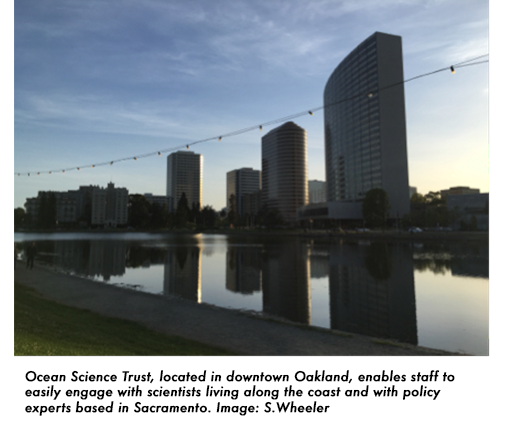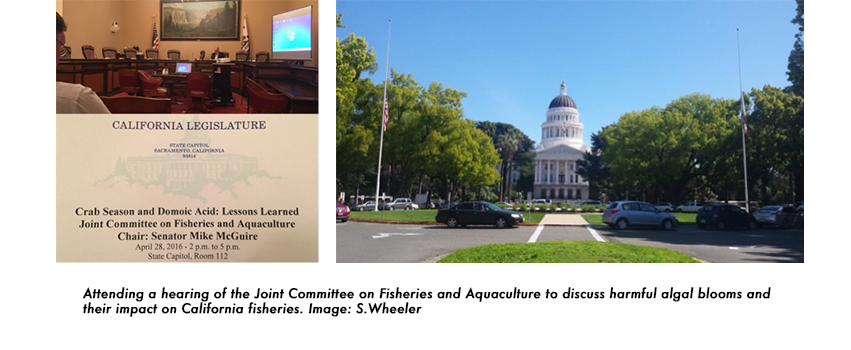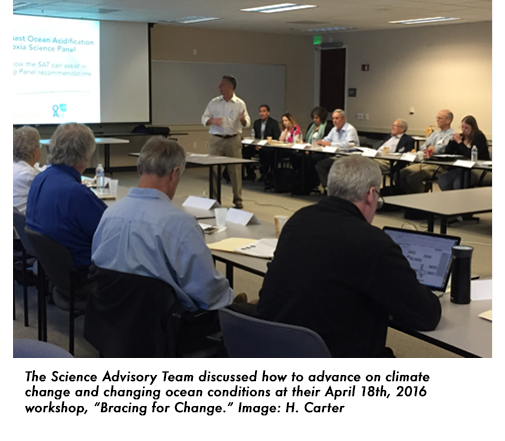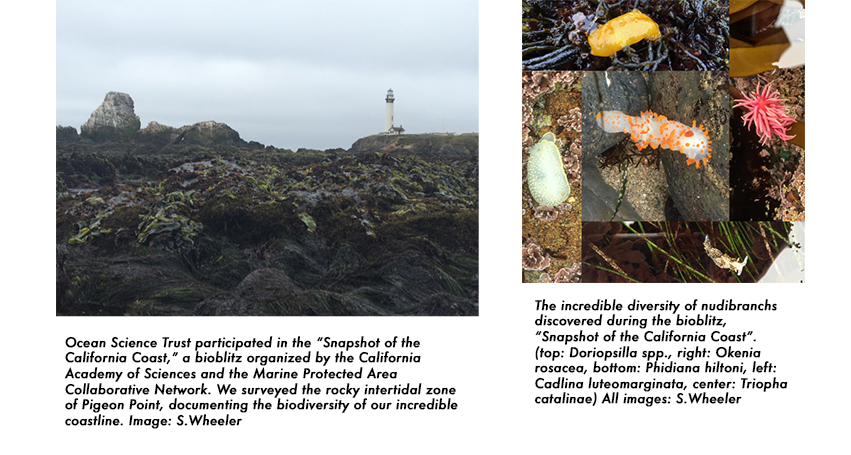The Challenge 
Climate change. It’s my biggest personal and professional challenge. And it’s why I’m here in Oakland – to figure out what we can actually do about it.
This year, I’m tackling climate change by working at the intersection of science, management and policy as a California Sea Grant State Fellow hosted by California Ocean Science Trust.
The Fellowship experience has been rewarding on a personal and professional level. I’ve witnessed scientists and managers deliberate on how to characterize the recent El Niño, prepare for harmful algal blooms, and predict the future of fisheries. While attending a recent Fish and Game Commission meeting, I’ve listened to fishermen describe their struggles and share their aspirations for the next generation of fishermen. 
Most of all, I’ve valued learning from Ocean Science Trust staff, who have a deep understanding of how to support science-based decision making. Integrating science into management is not a passive process. It takes active collaboration and engagement across disciplines and jurisdictions. Ocean Science Trust has taught me how to survey the landscape, identify science needs, and bring people together to advance on pressing ocean issues. It is a skill set that brings me confidence and comfort as I advance my career and take on the challenge of climate change.
Working at the boundary of science and policy 
Ocean Science Trust is a non-profit organization committed to working with government, science, and communities to build trust and understanding in ocean and coastal science. Founded by the California Ocean Resources Stewardship (CORSA) Act in 2001, we are directly linked to the State and partner closely with the Ocean Protection Council (OPC), a cabinet-level policy body that works to promote a healthy, productive, and resilient ocean and coast for all Californians. The OPC relies on Ocean Science Trust to provide the state with the best available independent science. One of the ways Ocean Science Trust does this is by managing the OPC’s Science Advisory Team, a group of California’s leading marine science experts. The SAT works with OST to resolve some of the most pressing science needs and it is my role as a Fellow to support this process.
Readying Fisheries Management for Climate Change
One of my biggest projects this year is to support the Climate Change and Fisheries SAT working group. Working closely with Leila Sievanen, a program scientist and anthropologist at Ocean Science Trust, I coordinate the group to develop guidance on how to consider and prepare for climate change in fisheries management.
Drawing upon my background in fisheries science, my primary role is to work with the natural science experts to synthesize the potential impacts of climate change to the California Current ecosystem, with a focus on species targeted for fishing.
What does this work look like?
- Organizing planning meetings
- Conducting a thorough literature review
- Facilitating group discussions
- One-on-one conversations with experts
- Outlining and drafting the document
- Synthesizing a polished product
Ultimately, the group will produce a guidance document for the California Department of Fish and Wildlife. Over the coming year, the Department will incorporate this information into their process of updating the Marine Life Management Act Master Plan, the primary document that guides Fisheries Management Plans.
Written by Sarah Wheeler
Follow @sarahgwheeler on Twitter




